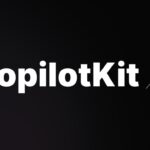
Imagine a world where ETL pipelines run seamlessly across any environment – from robust servers to resource-constrained edge devices. This is the future promised by portable ETL, a revolutionary approach that prioritizes flexibility and adaptability.
This blog post explores the limitations of traditional ETL frameworks and how portable ETL empowers data teams to:
- Simplify Development with Decorators: Move beyond complex OOP and embrace decorators, a Python feature that simplifies ETL process definition, making code more readable and maintainable for all team members.
- Embrace Lightweight Infrastructure: Challenge the assumption that ETL requires hefty resources. Portable ETL enables efficient execution on smaller systems, ideal for real-time processing or smaller data volumes, reducing costs and increasing agility.
- Scale with Serverless Functions: Leverage the power of serverless functions to handle unpredictable data loads. These platforms automatically scale to accommodate surges, optimizing resource utilization and minimizing costs.
Beyond Traditional ETL Limitations
Traditionally, ETL frameworks are designed for abundant computing resources, often overlooking the potential for running pipelines on smaller infrastructures. This rigidity can hinder agility and inflate costs.
Portability: A Paradigm Shift
Portable ETL breaks these barriers. Designed to run anywhere, it empowers data teams to:
- Reduce Complexity: Embed ETL processes directly within orchestrators, streamlining architecture and minimizing overhead. This fosters faster integration of new data sources and destinations.
- Enhance Agility: Respond swiftly to evolving data needs with a more responsive data architecture. Portable ETL simplifies deployment and enables data teams to adapt quickly.
- Optimize Costs: Leverage smaller, more efficient infrastructures for suitable scenarios. This reduces costs associated with maintaining large, underutilized systems.
dlt: A Champion of Portable ETL
This blog highlights dlt, an open-source library that embodies the principles of portable ETL. Here’s how dlt empowers developers:
- Empowers Developers: Focus on building robust ETL logic without infrastructure headaches. dlt seamlessly integrates with existing orchestration platforms, simplifying deployment.
- Customizable Pipelines: Don’t be limited by pre-built connectors. dlt provides a simple way to build custom pipelines, catering to unique data integration needs.
- Thrives in Diverse Environments: Run dlt pipelines on various infrastructures, from cloud servers to edge devices. This flexibility ensures adaptability to evolving needs.
The Future of Data Engineering
Portability, simplicity, and scalability are the cornerstones of modern data engineering. dlt exemplifies this shift, providing a framework that empowers developers to build efficient and adaptable data workflows.
Reference to the Article- dltHub





